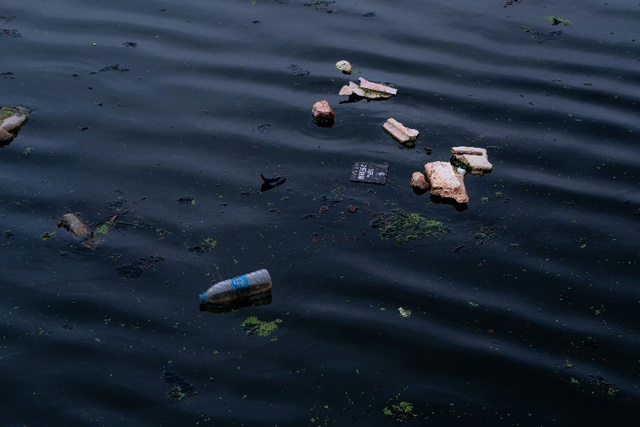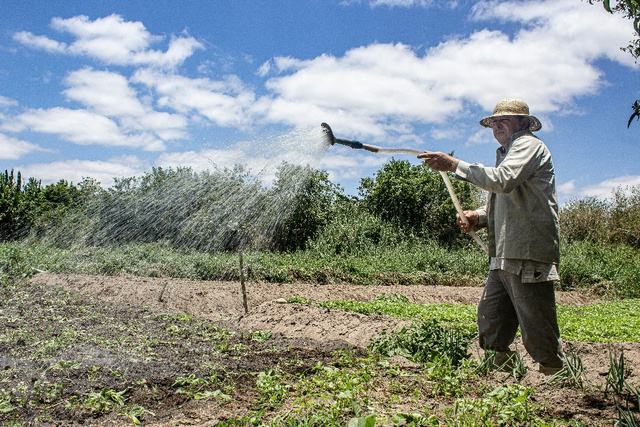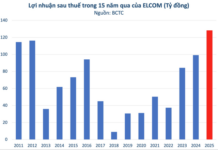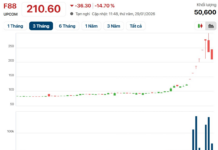Environmental Burden
Unlike gasoline, which is dispensed at a centralized location (gas station) and pumped directly into vehicles, engine oil is mostly pre-packaged in one to a few-liter plastic containers and retailed at various locations, catering mainly to end consumers such as cars and motorcycles.
According to estimates by Mordor Intelligence, the scale of the Vietnamese engine oil market is estimated at 308 million liters in 2024 and is expected to reach 342 million liters in 2026, growing at a CAGR of 5.3% in the period of 2024-2026. Also, according to this market research unit, the volume of lubricating oil used in motor vehicles is much larger than any other industrial application. Therefore, with a packaging specification of one to a few liters, the number of plastic bottles containing engine oil serving this group of motor vehicles is enormous. After being used, the amount of plastic discharged into the environment is a problem, not to mention the impact of the residual oil there.
Engine oil bottles are usually made of HDPE (High-Density Polyethylene) due to its durability, good chemical resistance, and effective waterproofing and moisture resistance. HDPE is a common plastic used in various applications, from food packaging to water pipes. However, HDPE takes a very long time to decompose, up to hundreds of years in the natural environment. Therefore, if not properly disposed of, they can accumulate and cause environmental pollution.
Waste engine oil is classified as hazardous under Circular No. 12/2011/TT-BTNMT of the Ministry of Natural Resources and Environment, with a high potential for pollution of the natural environment, such as agricultural land and water sources, as well as human health. Specifically, waste engine oil can seep into the soil, reducing the growth potential of crops and polluting groundwater. Engine oil does not dissolve in water and can settle in water bodies, forming a film on the water surface, hindering gas exchange and sunlight, which is harmful to aquatic ecosystems, including fish and other aquatic life. Waste engine oil also directly affects the human body and wildlife when exposed, posing a risk of exposure to hazardous chemicals and heavy metals…

Wildlife such as fish, birds, and amphibians can be poisoned by oil exposure. Source: Unsplash1.
It is estimated that more than 300,000 tons of engine oil are discharged annually after use, but the recovery and treatment of waste engine oil have not been thoroughly implemented as expected. The Environmental Protection Law, which took effect in 2015, stipulates in Article 87 that production, business, and service facility owners must recover and treat waste products, and consumers are responsible for transferring waste products to designated places. In reality, for many years, waste engine oil has not been thoroughly collected and treated, and people can easily buy it from vehicle repair shops for various purposes. Some even recycle and blend it to continue selling it on the market.
Hazards from Residual Oil Residues Used Illegally
Especially, waste engine oil also directly harms human health due to the lack of knowledge and responsibility of many people. In the past years, there have been several cases of farmers using waste engine oil to water vegetables to eradicate insects, which have been uncovered. The Environmental Crime Prevention Police, Ho Chi Minh City Public Security, together with the Cu Chi District Plant Protection Station, once spent a lot of time to catch some violators red-handed. In January 2016, a farmer in My Binh, Cu Chi District, was discovered using engine oil to water vegetables on a 5-hectare area. The farmer bought the waste oil from car repair shops at VND 12,000 per liter to use as a method of pest control.

There have been several cases of farmers using waste engine oil to water vegetables to eradicate insects. Source: Unsplash1.
At that time, Dr. Tran Ngoc Luu Phuong, Deputy Head of the Department of Internal Medicine, Digestive Hospital, Nguyen Tri Phuong Hospital, Ho Chi Minh City, warned about the dangers of engine oil, including new and used oil. According to Dr. Luu Phuong, engine oil contains industrial additives and heavy metals that can be harmful to human health. These toxins, when ingested, will accumulate in the body for a long time in organs such as the liver, kidneys, brain, and reproductive organs, possibly leading to serious diseases such as liver failure, kidney failure, memory loss, epilepsy, infertility, miscarriage, premature birth, and even cancer. Dr. Phuong emphasized that these substances should not exist in the human body. In addition, using waste oil to water plants can cause serious pollution to water and soil sources, affecting the future.
The Green Revolution: Leading the Way in Eco-Consciousness
With extended producer responsibility, businesses are now accountable for the collection and recycling of waste generated from their products. This shift has led to a surge in recycling demands, empowering recyclers with additional resources and presenting a unique opportunity to revolutionize waste management.
Sustainable Con Dao: Embracing a Circular Economy for Long-Term Prosperity
To foster sustainable development in Con Dao, aviation and high-speed ferry businesses have actively risen to the occasion with a plethora of supportive initiatives. These initiatives are designed to turn the vision of socioeconomic progress, hand in hand with environmental conservation, into a tangible reality.



















